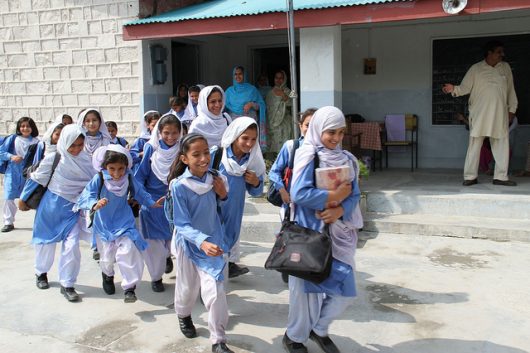Education in Pakistan Requires Improvements for the Future

Education in Pakistan is provided by the Constitution of Pakistan, which agrees to provide free education to students between the ages of five and 16. In 2010, the eighteenth amendment to the nation’s Constitution stated that education was a fundamental human right guaranteed to every citizen.
Recently, there has been a decline in the quality of education in Pakistan for the following reasons:
- Lack of Proper Planning
Pakistan is currently behind on its goals with the Millennium Development Project and Education For All. Both focus on improving education and breaking down the barriers that make access to education easier. For the past ten years, Pakistan has struggled with financial management and has not been successful meeting those goals.
- Social Constraints
The problem is not centralized to the government alone. Social and cultural norms have gradually made education less of a priority, thus leading to the decline.
- Gender Gap
In Pakistan, the enrollment of girls in school is 45 percent lower than the enrollment of boys. Pakistan’s society values conservatism, including a girl’s modesty, which limits a family’s willingness to send their daughter to school.
The delivery of education in Pakistan has been hindered by economic, political and security obstacles for the last 10 years, leading to an eventual decline in quality education. To combat this, organizations must use a top-down approach to be successful.
Luckily, the following two organizations are and have been working to alleviate this problem.
United We Reach
United We Reach (UWR) is a nonprofit organization that works to expand educational opportunities for children in socioeconomically stressed areas. In Pakistan specifically, it uses advanced technologies to create and distribute fully scripted lesson plans to students.
It is currently working on a project that integrates local Pakistani experiences with world-class education via tablets. In this project, every teacher at a UWR school is given a tablet that includes an inbuilt Learning Enhancement, Analysis and Feedback (LEAF) system, which acts as a teaching assistant. These tablets assess the student’s progress and send individual reports to the teacher so they know exactly which students are struggling and in what areas.
Global Partnership for Education (GPE)
Global Partnership for Education is the only global organization that is entirely dedicated to improving education in developing countries. It works to align policy-making and future planning to strengthen education systems. GPE has been working in Pakistan alongside UNICEF and USAID for the last six years.
Since it was launched in 2012, national spending on education in Pakistan has increased from 2.14 percent of GDP to 2.6 percent. This has created more jobs as more schools begin to open. While education is its primary focus, it also focuses on using education to improve the following areas:
- Personal experiences of children with disabilities
- Countries affected by fragility and conflict
- Development effectiveness in international communities
- Early childhood care
- Girls’ education and gender equality
- Knowledge and good practice exchange
- Out-of-school children
While external forces will continue to affect education, its quality and its delivery, organizations like these will continue to balance out the process by working toward improved education systems in Pakistan.
– Chylene Babb
Photo: Flickr
